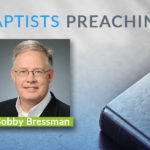Johnny Cash sang, “Love is a burning thing.”
Love may be a fire, but that’s not the fullness of love.
While watching a Hallmark movie with my wife several days ago—an act that approaches the fullness of love—I learned there are several Norwegian words for love.
One of the Norwegian characters disparaged Americans’ loose use of the word “love” before explaining Norwegians’ different words signifying types of love. Those of you who’ve heard a preacher or Bible teacher talk about the different Greek words for love will be on your way to understanding these Norwegian terms I can’t recall now.
Whether we employ a single word or several, we’re pretty sure we know what we mean by “love.” Then, John comes along and qualifies the idea with “perfect.”
I know the difference between my love for my wife and children, my love of reading, my love of nature, my love of coffee and chocolate, and so on, but the only way I can begin to understand perfect love is by following Jesus’ example.
Perfect love
“Perfect love drives out fear,” John wrote (1 John 4:18).
Perfect love puts fear, terror, dread to flight.
Agape that has reached completion—reached its telos, its goal—forcefully throws out fear.
Sign up for our weekly edition and get all our headlines in your inbox on Thursdays
When love does its work, it grabs fear by the collar and belt loops and throws it out the door.
Fear is so much a part of us that we’re afraid of love doing this kind of work in us, that it will go too far. We’re afraid of a lot of things in this world, which tells me love hasn’t reached completion—not in us, it hasn’t.
What are we afraid of? More than anything, we’re afraid of loss. We’re afraid of losing someone we love. We’re afraid of losing our livelihood. We’re afraid of losing our health, our comfort, our home, our standing, our will, our way and so much more. We’re afraid of losing.
Does perfect love drive out all that fear? I’m not an expert, not on this, but I think it will. That’s the promise.
“Fear is associated with punishment. Whoever fears hasn’t been perfected, completed in love,” John continued (1 John 4:18).
What are we afraid of? That’s the place where love is not yet complete in us.
Sacrificial love
God loved the world to the point of sending his one and only Son, so whoever believes in that Son will not perish, but will have eternal life. And God didn’t send his Son to sit as judge—deciding between who will be punished and who won’t—but to save the world, because punishment, condemnation is the default position. But whoever believes in the Son is no longer marked for condemnation (John 3:16-17).
“There’s no greater love than this: to lay down one’s life for one’s friends,” Jesus told his closest friends (John 15:13). And then he did—laid down his life for his friends.
But fear swung the sword at the guard’s ear (John 18:10). Fear denied the friendship three times (John 18:15-18, 25-27).
Love sought to renew three times, yet fear still compared outcomes, fearing someone else would have it better (John 21:15-23).
Agape in all his fullness came into this world as a helpless baby dependent on his mother’s milk, his father’s provision, his community’s nurturing. The One complete in himself had to learn to walk and talk—all in obedience to his Father’s will, all as a sacrifice.
The perfect love who drives out fear is the Sacrificial Lamb.
This was the news the angels sang when they appeared to the shepherds. This was the good news John proclaimed in his three letters and his Gospel. This is the news we still need now, because love in this world is not perfect. If you doubt that, look at how fear abounds—finding expression in us even in the presence of perfect love.
Love’s light
Once again, December has not been a quiet month. Much has happened in politics, in religion, in war to prove fear’s grip on and pervasiveness in us. Love has yet to reach its goal in us and in this world.
Part of love’s perfection—its completeness, its wholeness—is it does not have to bracket out the turmoil, hatred, pain, suffering and, yes, the fear—all the darkness—of this world, but instead overcomes it. To overcome the darkness, love makes contact like candlelight touches and pushes back even the thickest night.
“The light shines in the darkness, and the darkness has not overcome it” (John 1:5).
“The true light that gives light to everyone came into the world.” The incorruptible took on our corruptible flesh and lived among us (John 1:9, 14). And we saw the glory of his light.
This light is light for the world. This light is perfect love.
As imperfect, we mark our enemies. Perfect love does not rage against its enemies but shines its light.
As imperfect, we castigate impurity. Perfect love does not rail against the impure but shines its light.
As imperfect, we favor our own. Perfect love does not reject its rejection but shines its light.
To understand this love, we must walk in his footsteps. To know this love’s completion, we must go where this love goes.
But fear is a fire, too, a fiery ring.
When the dust of this Christmas settles, may it not be the fire of love we quench, but the fire of fear, so love may reach his goal with us.
Eric Black is the executive director, publisher and editor of the Baptist Standard. He can be reached at eric.black@baptiststandard.com. The views expressed are those of the author.















We seek to connect God’s story and God’s people around the world. To learn more about God’s story, click here.
Send comments and feedback to Eric Black, our editor. For comments to be published, please specify “letter to the editor.” Maximum length for publication is 300 words.